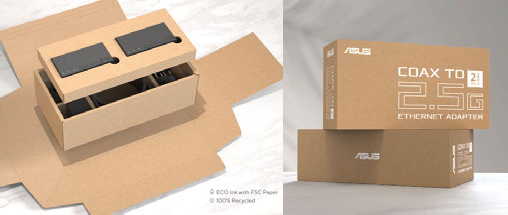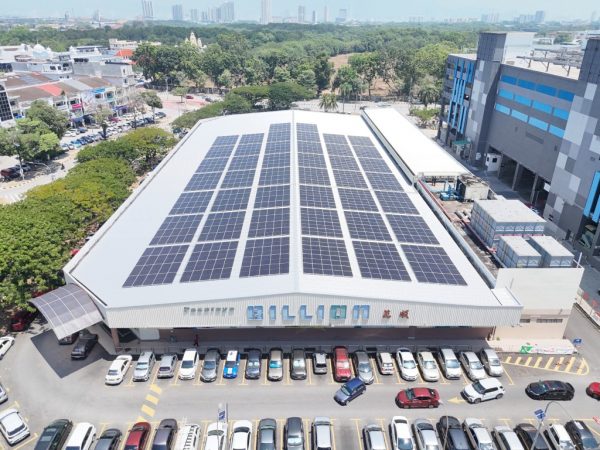
ASUS: Leading the Way to a Greener Future

In today’s world, laptop manufacturers have a vital role to play beyond making profits. ASUS is deeply committed to fostering a sustainable and eco-friendly future. Their dedication to environmentally responsible practices encompasses every aspect of their operations, from laptop production to ownership experiences, recycling, office management, and employee behavior.

Sustainability is at the core of ASUS’s identity. As Chairman Jonney Shih emphasizes, they integrate sustainable development goals into their decision-making processes to make a positive impact on society and the environment through concrete actions.
Let’s delve into how ASUS aligns itself with the United Nations’ Sustainable Development Goals (SDGs) and actively contributes to a greener future.
ASUS Sustainability Goals for 2025 and Beyond
At ASUS, they are committed to securing a greener future for generations to come. To achieve this, they’ve set ambitious goals for 2025 and beyond, which will significantly enhance their sustainability efforts.
1. Climate Action
Recognizing the global concerns regarding energy generation and consumption, they are taking steps to transition to 100% renewable energy at their offices and operational centers worldwide. By 2030, they aim to achieve this target starting with their headquarters in Taipei and globally by 2035.

Their commitment extends to their products as well. They strive to exceed the internationally recognized ENERGY STAR® energy efficiency standard by at least 30% each year. They are also actively addressing carbon emissions in the manufacturing process while reducing the carbon footprint of their key suppliers by 30%.
2. Circular Economy
The materials used in their laptops are of utmost importance. They are working to implement eco-friendly processes throughout the product lifecycle. In the design phase, they are committed to increasing the use of environmentally friendly materials in their products and packaging by 100% before 2025.

They are adopting modular design principles in their products to minimize waste and ensure longevity. Moreover, they are dedicated to recycling at least 20% of ASUS products globally, even after they reach the end of their life cycle.
3. Responsible Manufacturing
While they prioritize the environment, they also place great importance on the welfare of the people involved in delivering top-quality laptops. They carefully select their suppliers and actively enforce labor rights management. As full members of the Responsible Business Alliance (RBA), they mandate third-party audits for their key suppliers.

They responsibly source materials from qualified smelters, including minerals like tantalum, tin, tungsten, and gold. Their focus also extends to strengthening information security standards throughout the supply chain, aiming for 100% compliance from their key suppliers by 2025.
4. Value Creation

Their commitment to sustainability extends to the products they create and how they contribute to digital transformation and innovation globally. By 2025, they aim to increase sustainable value creation by 100%. They also prioritize younger generations by providing training to over 1,000 students to enhance their digital competency through partnerships with academic institutions and organizations.
What They’ve Achieved So Far
As they progress towards their 2025 goals, they’ve already achieved significant milestones:

- They’ve incorporated over 1,500 tons of post-consumer recycled (PCR) plastics into their products since 2017.
- In 2022, they used over 20,000 tons of recycled paper in their products.
- Their global recycling services have covered 75% of the planet, resulting in over 40,000 tons of e-waste recycled since 2019.
- They’ve donated over 20,000 computers to more than 1,800 non-profits since 2008.
Sustainable Materials in Their Laptops

In producing ASUS laptops, they prioritize using recycled, eco-friendly materials in essential components such as chassis covers, keyboard keycaps, speakers, peripherals, and adapters. They are also working on integrating post-industrial recycled metal and ocean-bound plastic into their products.

Their laptop packaging is also eco-friendly, using recycled paper or materials from Forest Stewardship Council (FSC)-certified suppliers that practice responsible forestry. Plus, the innovative packaging can be transformed into a laptop stand.

International Green Product Certifications in ASUS Laptops
When looking for eco-friendly laptops, watch out for ecolabels that guarantee product sustainability. ASUS laptops have earned the world’s leading ecolabels:

- EPEAT®: A global ecolabel covering technology products and services, ensuring environmental and social impact across the product lifecycle.
- ENERGY STAR®: A globally recognized certificate for energy efficiency, preventing greenhouse gas emissions.
- RoHS: A global regulation protecting the environment and public health by restricting hazardous substances in products.
Ecofriendly Actions When Shopping for an ASUS Laptop
You can contribute to their sustainability goals and a greener future when buying and using ASUS laptops:

- If you’re upgrading your laptop, regardless of the brand, explore ASUS recycling services available in 30 countries. Their program includes drop-off, mail-back, trade-in, and pick-up services.
- Consider choosing one of their Eco-Certified ASUS laptops for a more environmentally friendly option.
- Businesses seeking sustainability can opt for the ExpertBook B9 OLED, featuring an eco-conscious manufacturing process that reduces production materials and energy consumption.
To learn more about ASUS’s sustainability commitment, visit their sustainability site and explore their contributions and sustainability reports. Together, we can build a greener and more sustainable future.











